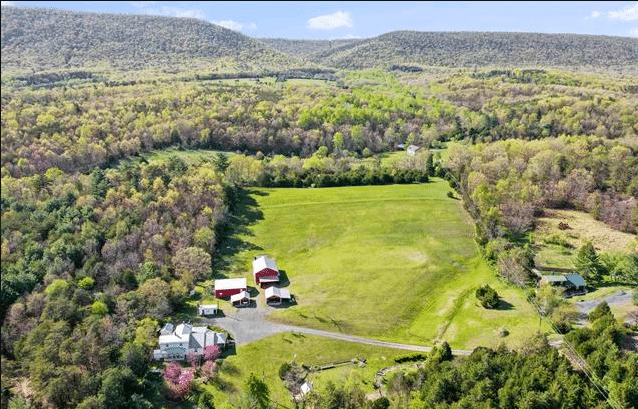Creating a functional Virginia farm from scratch may seem like an overwhelming task, but if you break it down into manageable steps and take your time to do things right, the job becomes easier.
So, what are the best practices for buying a Virginia farm?
First, find out everything you can about the property. Scour through every square foot of it alone and take someone who knows about Virginia farms with you to look at things from an objective viewpoint. Talk to neighbors in the area, nearby farmers, or other knowledgeable people. The more you know about the property, the better off you and your new farm will be.
Take pictures of all aspects of the property- from outside, inside, underneath, and even up in the air if possible. Get as much information about it as possible. A few weeks later, go through them again with someone who works in real estate or is familiar with farming in Virginia.
Types of Virginia farms to consider buying
There are four main types of Virginia farms to be considered:
1. Grain farm: Buying a grain farm involves growing and harvesting either dryland or irrigated corn, soybeans, or wheat. Most grain farms operate as part of a custom farming operation where the farmer is paid on a per-acre basis for the amount they can grow without using too much of any one input (such as fertilizer), but a few also sell their produce directly to a grain elevator. Buying this type of Virginia farm is like buying a business, and you will likely need to hire help rather than do the farming yourself.
2. Beef Farm: Buying a beef farm involves raising and feeding animals to create tender cuts of beef for consumers. This is an excellent type of farm compared to the other types, but it sure does take time.
3. Hog Farm: Buying a hog farm involves raising pigs as livestock for meat production. Meat forms the bulk of a hog farm’s income, and it operates on a relatively large scale. Buying this type of business can be very risky compared to the other types.
4. Dairy Farm: Buying a dairy farm involves raising cows for milk production in dairy farms or for beef in cattle feedlots. Dairy farming is one of the most challenging types of farming, but it also has one of the highest profit potentials. Buying this type of farm can be difficult and risky since so many things can go wrong in a dairy operation from cow health to the market conditions for dairy products.
Find a place that has good soil, water, and access to electricity and other necessities.
Buying a Virginia farm that has good soil makes the job easier because you won’t have to do as much work to prepare it for planting or growing. Water can be pumped in from streams and underground wells, or if available, can be purchased from a neighboring farmer under an inexpensive irrigation plan. Electricity is usually connected to nearby power lines. Buying a Virginia farm that has access to these things cuts down on the cost of bringing them in.
Different Methods of Buying a Virginia Farm:
According to agriculture.com, the value of a Virginia farm is based on many factors, including acreage, how recently it was farmed, and what crops are being grown there now.
In addition to these factors, the market value of a commodity is also important. Buying a Virginia farm when it is ready for harvest can be more profitable than buying at other times of the year.
Buying directly from the owner or heirs can save you thousands because there are no agents involved. Buying with financing makes sense if you can’t pay cash. Buying a farm that has been foreclosed may require paying off the balance of any outstanding loans- or even getting rid of some of the debt. Buying from an estate can also be cheaper because heirs sometimes want to sell quickly without much negotiating, especially if family relationships are strained.
Final Thoughts
Buying a Virginia farm can be complicated and expensive, but it is also one of the most rewarding things you can do. If you follow these steps and research various farms before making a final decision, your first farm will become an asset.


